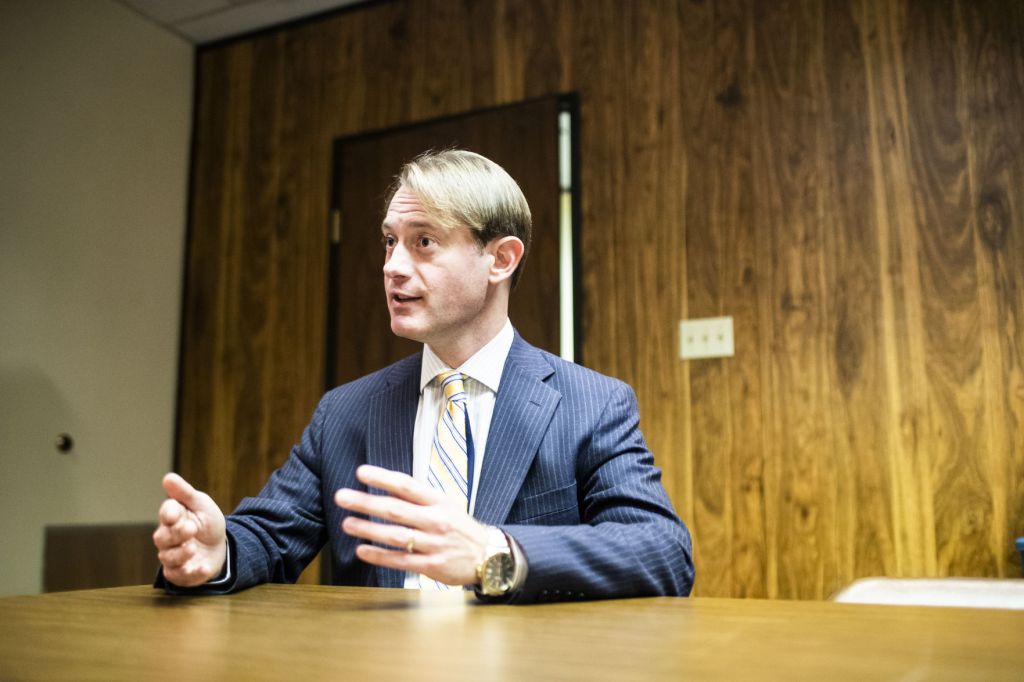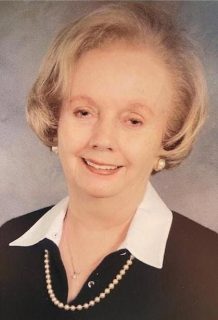Adams, others look to bolster state’s civic education
Published 9:00 am Friday, September 2, 2022

- Michael Adams
Kentucky’s original state constitution included the right to a public education, not to train people for work, but to train them as citizens. The purpose of school was to enable people to self-govern.
Now, it’s a different story. After the state’s primarily agricultural economy shifted to a more skills and knowledge-based economy, and the Cold War led the U.S. to push greater science, math and technology education to compete with the Soviet Union, civics education fell to the wayside.
Trending
Currently, while public school students have to pass a civics test to graduate, further civics education isn’t required in the curriculum by law.
“Everyone can cram for a test,” Kentucky Secretary of State Michael Adams said. “This needs to be a bigger project than just cramming for one test on one day, it needs to be a more implemented part of education.”
Adams thinks it’s time to bring civics education – understanding how government works and how “to separate fact and fiction and legitimate information from misinformation” – back to life.
Adams sees its lack as one of the biggest problems the commonwealth is currently facing.
“I think it’s one of the reasons that people are so angry,” Adams said. “They feel totally impotent. They feel totally powerless. Well, part of it is self-inflicted, that they’re not correctly exercising the power that they actually have.”
It’s a troubling equation. Rising polarization plus civic illiteracy equals unaccountable government, Adams said. Election turnout is low, and those who do vote aren’t always adequately vetting the candidates they’re nominating and electing into office. Citizens see problems in their lives and don’t know who or where to go for answers or accountability.
Trending
Adams hopes to alleviate some of these issues through the Kentucky Civic Education Coalition, a newer branch of the Kentucky Council for the Social Studies.
The KCEC was created by Carly Muetterties as a formal organizational structure to bring a variety of stakeholders – educators, elected officials, nonprofit leaders, district leaders and students – to the table on behalf of civic education. The group is nonpartisan. Its mission is to first figure out what students and teachers need to weave civic education into their classrooms, and then implement those things.
“A strong civics program gives students the opportunities to identify things that are important to them and also a structure for them to learn more about the issue, look at diverse perspectives about the issue, consider what people are doing and then determine how they want to take action,” Muetterties said.
Right now, the group is just in its preliminary stages, but it plans to pilot a civic seal program next school year. The seal program will be a voluntary program that educators and districts can decide to use that would give students who passed a civics curriculum a gold seal on their diploma and line on a resume recognizing them as an especially informed citizen.
It’s a “baby step” toward the ultimate goal of having a civics education in every school, Adams said. But it needs to be a grassroots effort first, he said, to figure out what works and get people on board.
Muertterties said the KCEC was recently awarded a grant from iCivics, a nonprofit founded by Sandra Day O’Connor that focuses on civics education advocacy. While Kentucky has strong civics standards – “even if you’re doing world history, ancient history, there’s still that expectation that students are connecting back to the real world” – it doesn’t necessarily have the infrastructure to fully implement them, she said.
The grant will be used for that implementation, she said.
As the KCEC continues working, its biggest obstacle will be convincing stakeholders that its goal is not to be partisan, “indoctrinate” anyone or tell students whether to go march on the streets, but rather to empower students with the knowledge to make their own choices.
“What I’m trying to put out there is I’m not trying to tell students what to do, or what to think,” Muetterties said. “But we’re trying to equip students with the tools to do their own thinking and to make informed decisions about how they apply what they know.”
– Follow regional reporter Sarah Michels on Twitter @sarah_michels13 or visit bgdailynews.com.






